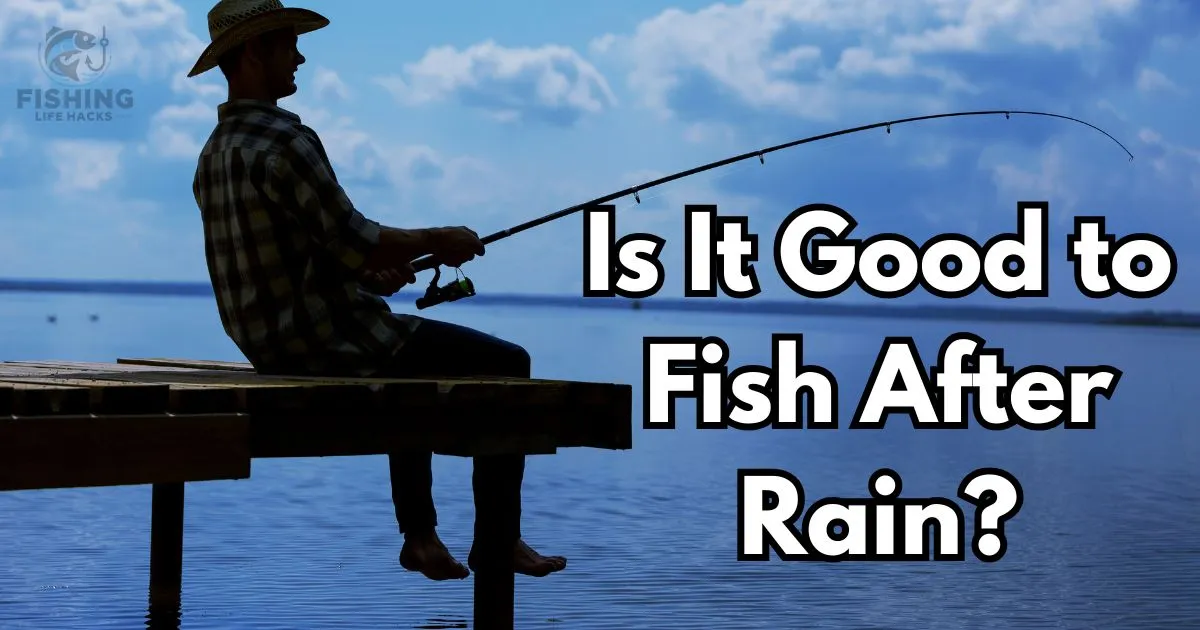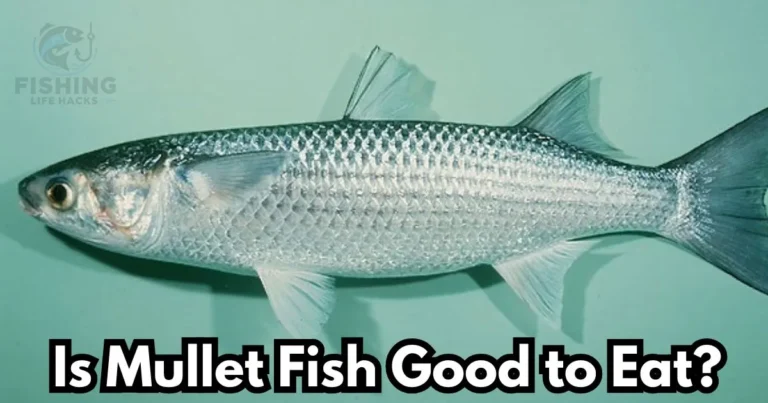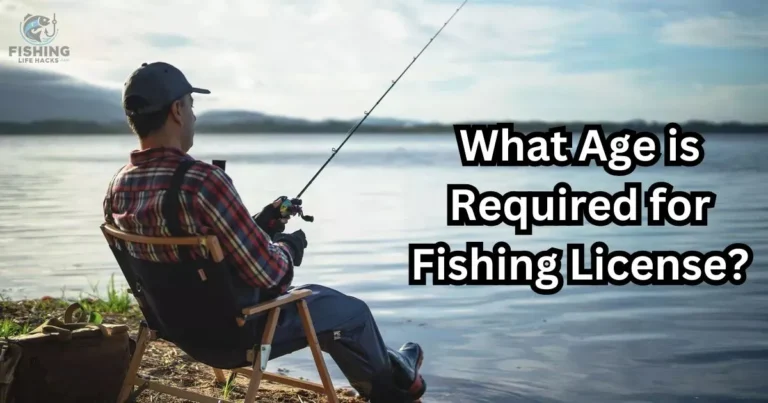Is It Good to Fish After Rain?

Fishing enthusiasts frequently discuss when is the ideal time and place to cast their lines, with one popular question being “Is fishing after rain beneficial?” Since weather plays such an integral part in fish behavior, understanding its effect can increase your odds of making successful catches. We’ll look at whether fishing after rain is beneficial as well as provide expert tips for making the most out of fishing trips.
How Does Rain Affect Fish Behavior?
Rain impacts the aquatic environment in several ways, including changes in water temperature, oxygen levels, and the behavior of fish. The effects can vary depending on the intensity of the rain, the body of water you’re fishing in, and the type of fish you’re targeting.
- Water Temperature
Rainwater tends to be cooler than lake, river and pond water during hot temperatures, making raindrops an effective means of cooling off water temperature and stimulating fish activity. Many species such as bass and trout feed more actively when the temperature of their environments has dropped following rainfall, making this an excellent time for fishing!
- Water Oxygenation
Rain can help oxygenate the water when it falls heavily, creating ripples on its surface. This increased oxygen level may encourage fish to swim closer to the surface and become more active, while shallow raindrops may stir up sediment, providing them with easier access to food sources like insects or worms that have been stirred up by their movement.
- Changes in Water Current
Heavy rainfall can also alter water currents in rivers and streams, which can disorient fish and force them to seek shelter elsewhere in the river or stream. Fish typically seek areas with ample oxygen availability such as rocks or submerged vegetation – providing ideal fishing spots immediately following rainfall.
- Changes in Light and Visibility
Rainstorms, particularly thunderstorms, can obscure the sky and lessen natural light reaching the water’s surface, creating murkier waters for fish to feel safe as predators become less visible to them; consequently they are likely to become more active, giving anglers greater chances to reel them in for a catch.
What Types of Fish Are Best to Catch After Rain?
While rain affects all fish species to some extent, certain types of fish are known to be more responsive after a storm. Understanding which fish are most likely to be active after a rainstorm can help you target the right species and improve your chances of success.
- Bass
Bass and particularly largemouth bass tend to become more active after rainstorms, moving shallower waters in search of food. Cooler temperatures, increased oxygen levels and disrupted currents can stimulate their feeding behaviour and drive bass aggressively towards rocks, fallen trees or submerged vegetation – helping you land your catch!
- Trout
Trout are coldwater fish species that respond well to rain. Because trout prefer cooler waters, rainfall brings with it lower water temperatures that stimulate them to feed, usually found near fast moving currents or shallow areas where insects proliferate after rainstorms.
- Catfish
Catfish is an aquatic bottom dweller with an acute sense of smell that enables it to locate food sources even in murky water environments. After rainstorms, catfish often emerge from their hiding places to search for sustenance; with increased oxygen levels and food scents floating through the water this makes for ideal catfish fishing opportunities.
- Perch and Crappie
Both perch and crappie are also known to be more active after rain. These species are more likely to move to shallower areas and take advantage of the abundance of food stirred up by the rainfall. They can be found in deeper parts of lakes or in areas with submerged structures, such as submerged logs or rock piles.
- Walleye
Walleye are another fish species that can be more active following a rainstorm. The reduced light levels, cooler water, and altered currents can make walleye more inclined to hunt during the early morning or late evening hours after a storm.
Advantages of Fishing After Rain
Fishing after rain offers several distinct advantages that can improve your chances of landing a catch. Here’s why it might be a good idea:
- Increased Activity Levels
Fish are usually more active and willing to feed after a rainstorm due to its cooling of the water, increased oxygen levels, and disruption in their environment – this makes for an excellent opportunity for fishing! They tend to bite more often during this period than normal making this an excellent time of day to fish!
- Fish with Less Competition
Many anglers prefer fishing during clear weather, leading to overcrowded fishing spots. Following a rainstorm, less anglers will likely be on the water, giving you more room to cast your line and less competition to contend with.
- Fish Variety
A rainstorm often activates various fish species to move more actively and bite. You are more likely to encounter bass, catfish and trout that have more bite-intent after fishing for them.
- Better Water Conditions
Rainwater helps oxygenate the water, providing more oxygen-rich environments for fish who require high levels of oxygen to thrive. Furthermore, rainfall creates cooler, fresher conditions after it falls that make fishing more favorable – particularly in regions with hot temperatures where fishing conditions tend to be unfavorable.
- Increased Food Sources for Fish
Rainstorms bring in food sources for fish to consume, which encourages foraging activity and more likely bites on bait.
Things to Keep in Mind When Fishing After Rain
While fishing after rain can offer great opportunities, there are some considerations to ensure a successful trip.
- Safety Concerns
Rainstorms, especially thunderstorms, can create hazardous fishing conditions. Always prioritize safety by waiting until lightning storms or high winds pass before venturing out – check weather reports beforehand as well.
- Water Clarity
Heavy rainfall can turn the clarity of lakes and rivers that contain large sediment concentrations murky. While this won’t deter fish, it makes it harder for bait to be seen or detected by them; to make things easier for yourself in murky conditions use bright-colored lures or baits that will easily be noticed by them.
- Flooded Areas
In rivers and streams, heavy rainfall can cause flooding, which may change the landscape and make fishing more challenging. Be cautious about fishing in fast-moving currents or areas that have become dangerously flooded.
- Time of Day
Fish are often more active in the early morning or late evening, particularly after a rainstorm. Plan your fishing trip during these times to take advantage of the peak feeding periods.
Frequently Asked Questions
Conclusion
Yes, fishing after rain can be highly productive. Cooler temperatures, higher oxygen levels, and shifting currents tend to make fish more active, increasing anglers’ chances of catching various species such as bass, trout, catfish or perch. Although fishing after rainfall often results in successful outings if precautions such as water clarity and flood risks are considered beforehand.






